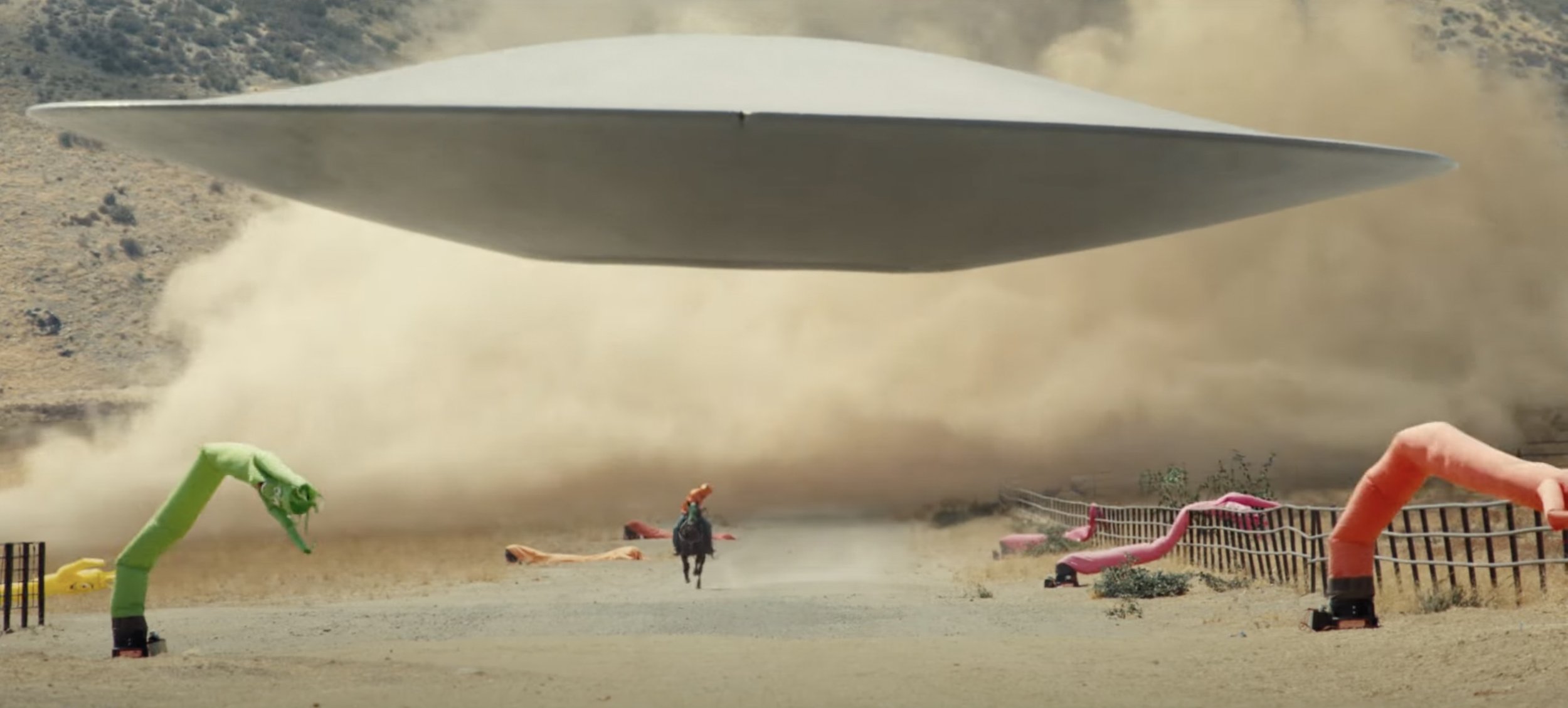‘Nope’ Review: A Definite Yep
Daniel Kaluuya’s character, OJ asks his sister Em (Keke Palmer), “What do you call a bad miracle? They got a word for that?”, both an interesting pradox and a central theme of the film. Her answer is also the title of the move… Nope. From the first poster and teaser, an air of mystery was cultivated about the exact goings-on for the film. There was something in the sky that the characters simply could not look away from. At last, we have some answers.
OJ and Em run Haywood Hollywood Horse ranch outside of Los Angeles. After the passing of their father (Keith David), money has been tight for the siblings. They’re booking less productions and may have to sell the ranch. Their only source of income is the sale of their horses to Ricky “Jupe” Park (Steven Yeun). He runs the nearby western-themed Jupiter’s Claim amusement park and uses the horses to add to the ambiance.
An answer to OJ and Em’s money trouble comes to them from an unlikely place: the clouds. The siblings have noticed something resembling a UFO darting through the clouds above their ranch. Em is certain that if they get what she calls, “The Oprah Shot,” their financial woes will be long gone. With the help of Angel (Brandon Perea), a Fry’s Electronics employee, the siblings set up cameras to catch the UFO in action.
Writer, director, and producer Jordan Peele opens the film with a Bible verse that is not very well-known. Nahum 3:6 says, “I will cast abominable filth upon you, Make you vile, And make you a spectacle.” Over the course of the two hour film, that’s exactly what Peele does. In critiquing the idea of what makes a spectacle, Peele has created an awe-inspiring exhibition of his own. Visually, there’s nothing like a Peele film. The production design of the aliens that lurk in the clouds, the sparkled suit of Jupe, and the entirety of Jupiter’s amusement park all come alive, especially in IMAX.
There are many hidden themes within Nope, as one has come to expect from Peele. The idea of what constitutes a spectacle and how those involved are treated is perhaps the largest concept at work. The movie would not progress were it not for characters choosing money, notoriety, and pleasure over morality. Events that one character sees as bad, another morphs it into a “miracle.” It all depends on their definition, but they also must reap what they sow.
There are consequences for these characters choosing to exploit tragedies and living animals for their own gain within the movie. In creating a spectacle of his own to get this point across, Peele has now put the audience under scrutiny. It feels poignant given the abundance of true crime documentaries and dramatizations that exist in pop culture. Society has an obsession with these seemingly unthinkable stories (not limited to true crime). So much so that we reproduce them at every possible chance which creates a disconnect in our ability to understand tragedy. Real people are distorted into characters and fundamentally life-altering events are memorialized. Not for the sake of remembering and learning, but to gawk.
Ultimately, Nope stretches itself to too long of a runtime. The spectacle begins to wear thin and some of Peele’s grand ideas unravel their connection to the greater purpose. Peele has created so many rich storylines that a few of them disappear without feeling like they had an ending. That being said, Palmer and Kaluuya are a dynamic duo throughout the entirety of the film. Kalyuua plays the stoic, cowboy-type and Palmer his chaotic foil. Michael Abels’ score is lively and (thankfully) does not follow the recent trend of minimalist scores; almost a mix of the style of 80s Spielberg movie epics and underlying modern discordant sounds.
Nope is larger in scale than Peele’s previous films and he feels very in command of what he wants to create. While it doesn’t reach the same heights as Get Out, there is still something thrilling about seeing where Peele’s mind will take the audience next.



